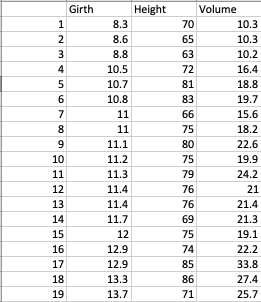Overview:
- Sorting is the process of ordering a sequence of objects, numbers, records and so on based on specific criteria.
- In Computer Science, the criteria for sorting is generally specified through a predicate function which tells, among two objects in question which one should be given precedence in the sorted order.
- The most common criteria applied for sorting is "Greater Than" and "Less Than" conditions. Based on these two criteria, objects are arranged in either increasing order or in decreasing order.
Sorting the elements of a pandas.Series:
- The Python class pandas.Series implements a one-dimensional heterogeneous container with multitude of statistical and mathematical functions for Data Analysis.
- A Series in pandas can be sorted either based on the values it hold or its index.
- Also the Series elements can be arranged in either decreasing order or increasing order.
- While sorting instances of user defined classes it is recommended to implement the rich comparison methods __lt__(), __gt__(), __le__(), __ge__(), __eq__() or at least the __lt__(), __eq__() methods.
- The Python example code below loads a CSV file with data about Black Cherry Trees and selects height data into a pandas.Series instance.

Example - Sort a pandas.series based on the values:
|
# Example Python program to sort the elements present in a pandas.Series import pandas as pds
# Path of the CSV file containing Girth, Height and Volume data of Black Cherry Trees csvPath = "./trees.csv"; dataFrame = pds.read_csv(csvPath);
# Select height of the Black Cherry Trees into a pandas.Series instance series = dataFrame["Height"]; sortedSeries = series.sort_values();
print("First ten values from the sorted series:"); print(sortedSeries.head(10)); |
Output:
|
2 63 19 64 1 65 6 66 13 69 0 70 18 71 3 72 23 72 22 74 |
Example - Sort class objects stored in a pandas.Series:
This pandas example stores multiple class objects in a pandas.Series. The class Part implements the __lt__() method and the __eq__() method.The developer can choose to implement the the sorting either based on either member - id or price. This implementation uses the price to determine the sorting order.
|
# Example Python program to sort class instances stored in a pandas.Series import pandas as pds
# Class definition of some part(of a car, furniture...) class Part: def __init__(self, id, price): self.id = id; self.price = price;
# Providing a price centric sort def __lt__(self, part): return self.price < part.price;
# Providing a price centric sort def __eq__(self, part): return self.price == part.price;
# Describe the part...the string representation def __str__(self): return "Id:%d,Price:%.2f"%(self.id,self.price);
# Create parts part1 = Part(1, 98.5); part2 = Part(2, 35.6); part3 = Part(3, 47.4); part4 = Part(4, 12.4); part5 = Part(5, 9.4);
# Store them in a series series = pds.Series([part1, part2, part3, part4, part5]);
# Sort the parts based on price partsSorted = series.sort_values();
# Print the parts in sorted order print("Parts sorted based on their price:") print(partsSorted); |
Output:
|
Parts sorted based on their price: 4 Id:5,Price:9.40 3 Id:4,Price:12.40 1 Id:2,Price:35.60 2 Id:3,Price:47.40 0 Id:1,Price:98.50 dtype: object |
Example - Sorting a pandas.Series based on its index:
|
# Example Python program to sort a pandas.Series # based on its index import pandas as pds
series = pds.Series(["e", "a", "i", "u", "o"], index=(1,0,2,4,3)); sorted = series.sort_index();
print("Unsorted:"); print(series);
print("Sorted:") print(sorted); |
Output:
|
Unsorted: 1 e 0 a 2 i 4 u 3 o dtype: object Sorted: 0 a 1 e 2 i 3 o 4 u dtype: object |